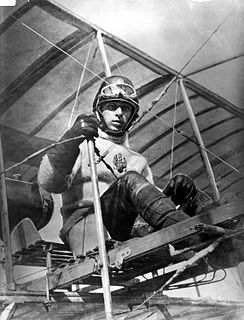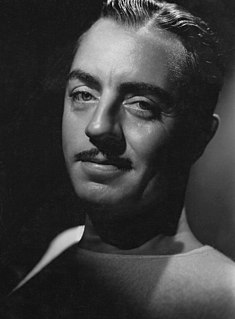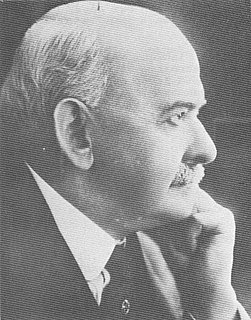A Quote by Martin Buber
But when a man draws a lifeless thing into his passionate longing for dialogue, lending it independence and as it were a soul, then there may dawn in him the presentiment of a world-wide dialogue with the world-happening that steps up to him even in his environment, which consists partially of things. Or do you seriously think that the giving and taking of signs halts on the threshold of that business where an honest and open spirit is found?
Related Quotes
Man is more than his environment. It is from the innate quality of the Spirit in him, his inner storehouse, that he draws those ideas, his intuitions, which unify his perceptions of the external world instantaneously with a value which is qualitative and not quantitative, and which he embodies in the works of his culture - those achievements which belong not only to one particular time but to all times, and mark the path of his upward progress.
Some souls think that the Holy Spirit is very far away, far, far, up above. Actually he is, we might say, the divine Person who is most closely present to the creature. He accompanies him everywhere. He penetrates him with himself. He calls him, he protects him. He makes of him his living temple. He defends him. He helps him. He guards him from all his enemies. He is closer to him than his own soul. All the good a soul accomplishes, it carries out under his inspiration, in his light, by his grace and his help.
Man is a spiritual being, a soul, and at some period of his life everyone is possessed with an irresistible desire to know his relationship to the Infinite. . . . There is something within him which urges him to rise above himself, to control his environment, to master the body and all things physical and live in a higher and more beautiful world.
We say, then, to anyone who is under trial, give Him time to steep the soul in His eternal truth. Go into the open air, look up into the depths of the sky, or out upon the wideness of the sea, or on the strength of the hills that is His also; or, if bound in the body, go forth in the spirit; spirit is not bound. Give Him time and, as surely as dawn follows night, there will break upon the heart a sense of certainty that cannot be shaken.
I discovered early that the hardest thing to overcome is not a physical disability but the mental condition which it induces. The world, I found, has a way of taking a man pretty much at his own rating. If he permits his loss to make him embarrassed and apologetic, he will draw embarrassment from others. But if he gains his own respect, the respect of those around him comes easily.
Man is not by any means of fixed and enduring form (this, in spite of suspicions to the contrary on the part of their wise men, was the ideal of the ancients). He is nothing else than the narrow and perilous bridge between nature and spirit. His innermost destiny drives him on to the spirit and to God. His innermost longing draws him back to nature, the mother. Between the two forces his life hangs tremulous and irresolute.
What a man does, that he has. What has he to do with hope or fear? In himself is his might. Let him regard no good as solid but that which is in his nature, and which must grow out of him as long as he exists. The goods of fortune may come and go like summer leaves; let him scatter them on every wind as the momentary signs of his infinite productiveness.
Only to two or three persons in all the world are the reminiscences of a man's early youth interesting: to the parent who nursed him; to the fond wife or child mayhap afterwards who loves him; to himself always and supremely--whatever may be his actual prosperity or ill fortune, his present age, illness, difficulties, renown, or disappointments--the dawn of his life still shines brightly for him, the early griefs and delights and attachments remain with him ever faithful and dear.
In my acquaintance with John Rawls, I found him to be a simple and honest man, who just by chance also happened to be the greatest moral philosopher of the twentieth century. I would like to think that I could emulate at least his modesty - his refusal to exaggerate his perception of himself and his place in the larger scheme of things - even if my work never compares with his in its importance.
I have never gone into a picture without first studying my characterization from all angles. I make a study of the fellow's life and try to learn everything about him, including the conditions under which he came into this world, his parentage, his environment, his social status, and the things in which he is interested. Then I attempt to get his mental attitude as much as possible.
But nature - that is, biological evolution - has not fitted man to any specific environment. On the contrary, ... he has a rather crude survival kit; and yet -this is the paradox of the human condition - one that fits him to all environments. Among the multitude of animals which scamper, fly, burrow and swim around us, man is the only one who is not locked into his environment. His imagination, his reason, his emotional subtlety and toughness, make it possible for him not to accept the environment but to change it.
What is it to 'walk in the Spirit'? It is not self-occupation, nor even occupation with the Spirit. Walking according to the Spirit is occupation with the Lord Jesus Christ in glory. If the believer ever looks to the Lord Jesus, depends upon Him, draws all his needs from Him- if He is his All in all- then the believer walks according to the Spirit of Christ.







































